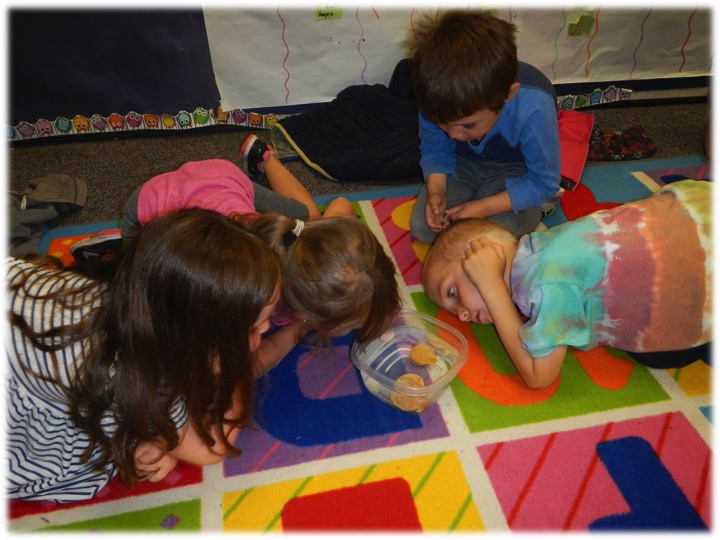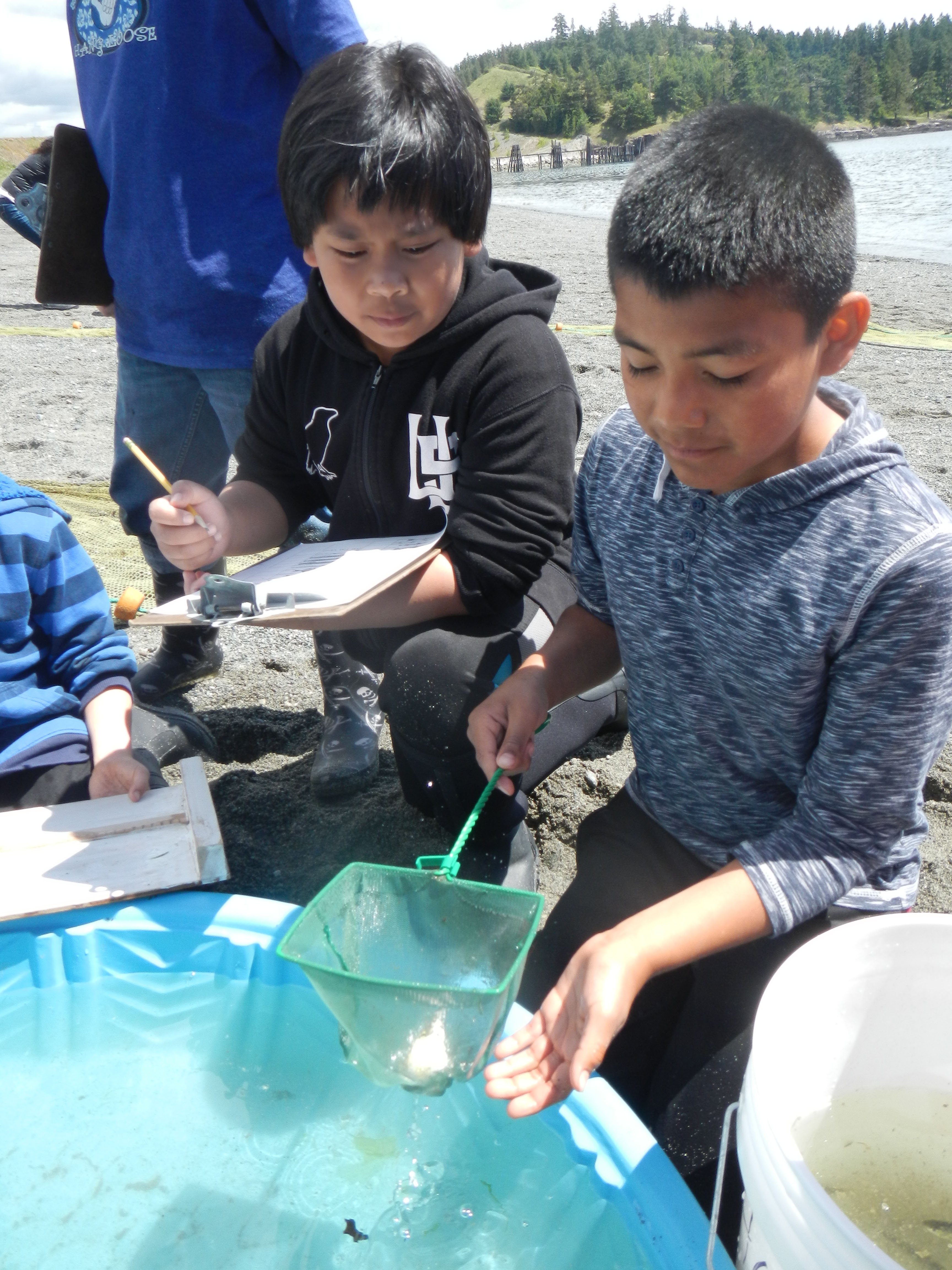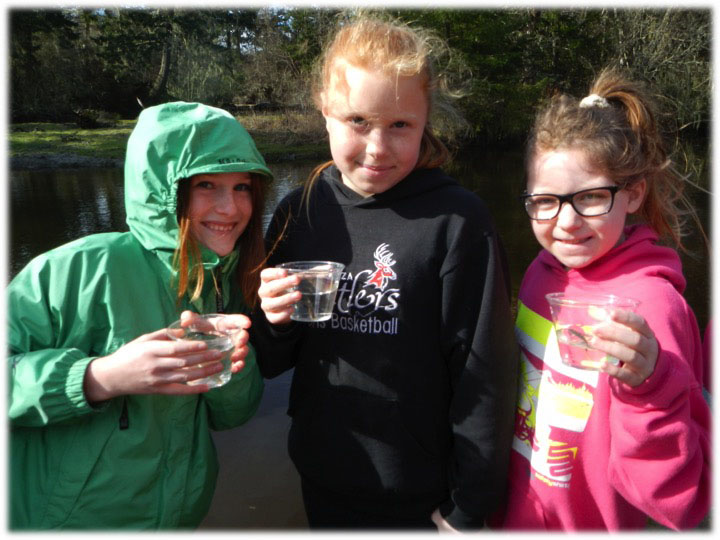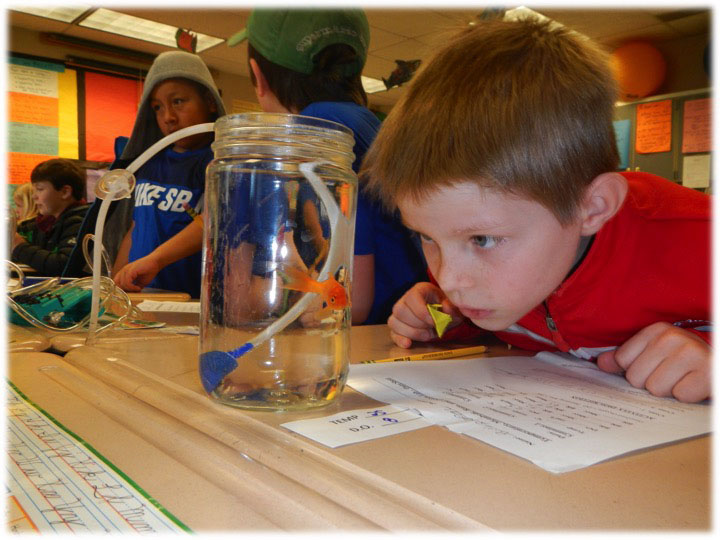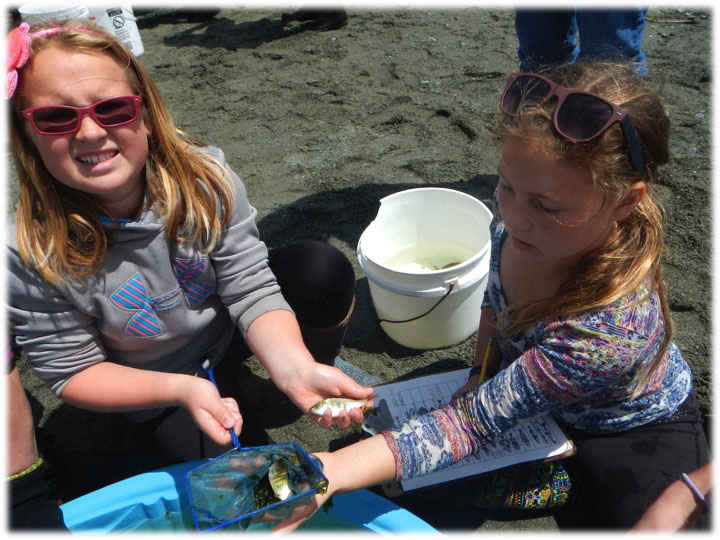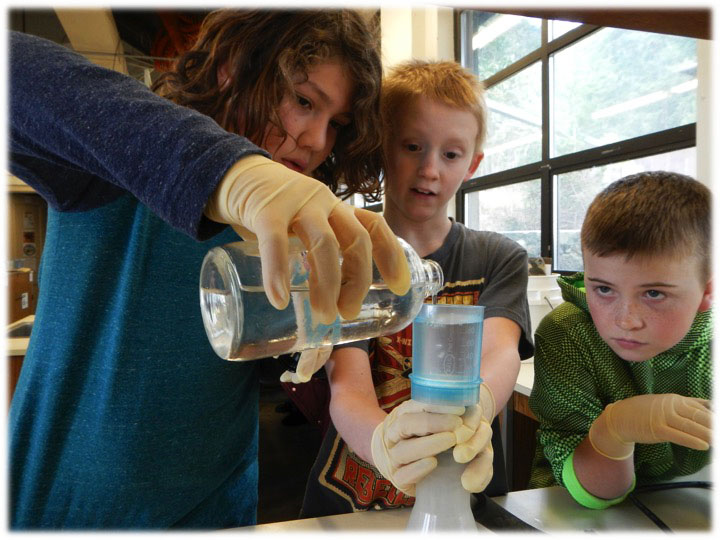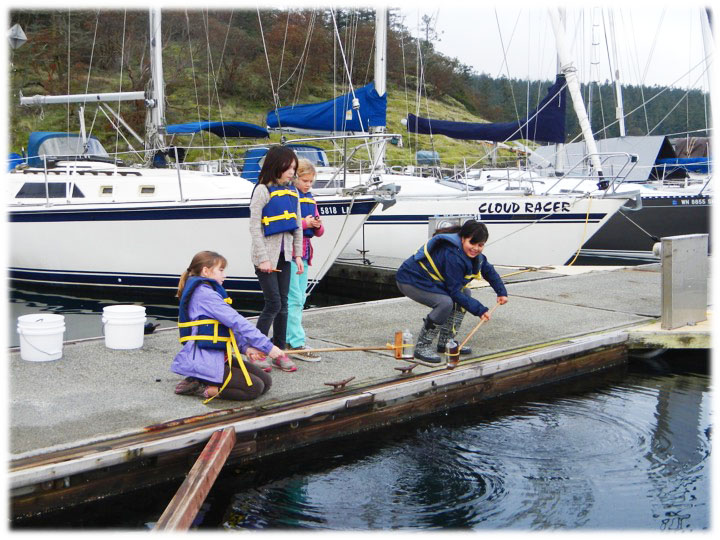Elementary School Projects
FHLSOP and the Friday Harbor Elementary School work together on a variety of exciting projects which vary from introducing students to local marine organisms to monitoring water quality in Friday Harbor Marina.
Kindergarten - How are we alike? Sea Stars, Scallops & Me! FHLSOP personnel bring live marine animals, without a backbone, into the classroom so students can explore how they are similar and different from ourselves. This is the students first introduction to the Outreach Program which they will be participating in each year of their K-12 education. |
|
| Grade 1 - Scientific Inquiry/Investigation: UW Marine Biology students introduce first graders to the idea of scientific inquiry/investigation while using loupes to magnify their world 5X. With careful and thoughtful observations, FHES students carefully answer the questions: What else does it remind me of? What else does it look, feel and smell like? Why did it remind me of that? Why is it like that? Students also conduct inquiry experiments with their UW mentors including: Exploding Rainbows, Volcanoes, and Slime Time. |
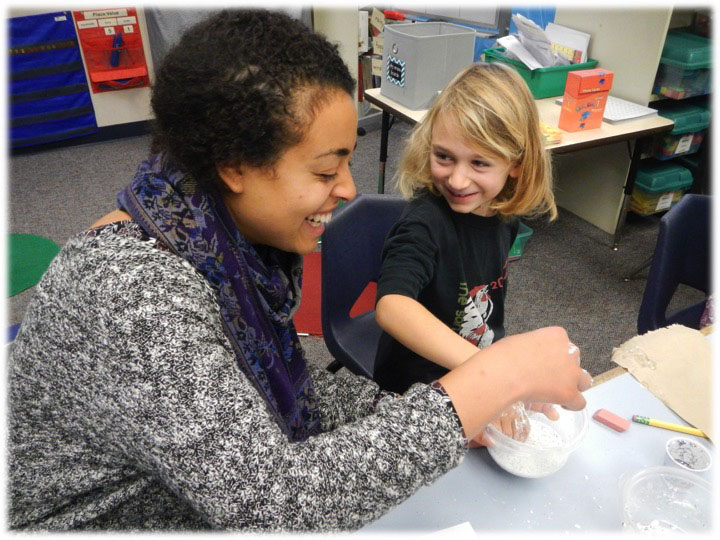 |
| Grade 2 - Is it an Animal or Plant Inquiry Lab: Friday Harbor Labs Science Outreach Program personnel take marine organisms to the 2nd Grade classrooms for an inquiry-based lab: Is it an Animal or a Plant? Through the inquiry process, students are introduced to simple marine organisms. After observing the live organisms, the students in small groups, use a list of contrastng characteristics to determine if their organism is more plant-like or animal-like. |
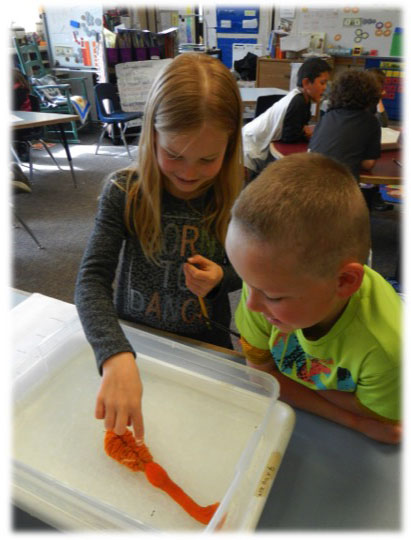 |
Grade 3 - Introduction to Marine Invertebrates and Ecosystems: Students learn about the major marine invertebrate groups through a series of classroom visits from two dedicated FHL scientists, Megan Dethier and David Duggins. In the field they conduct a quantitative survey of the invertebrates on Argyle Beach with particular attention to the invasive clam, Nuttallia obscurata. Students collate and graph their data, create hypotheses about population change and distribution, and present their results to their peers and their university partners.
This grade also takes a field trip to the University's Research Vessel Kittiwake (dockside) to see demonstrations that model Salish Sea water dynamics and to participate in the "Diver for a Day" activity. This involves sending scuba divers off the Centennial with a communication system and video camera. Students learn about subtidal organisms and habitats as they view them and ask questions to submerged scientists. |
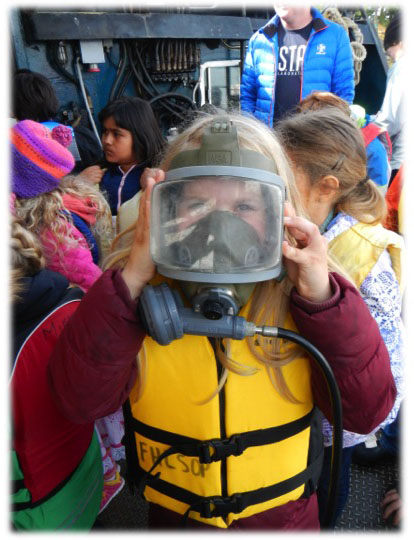 |
Grade 4 - Watersheds and Eelgrass Beds: Through a series of classroom activities and labs focusing on watersheds, fish metabolism, eelgrass ecosystems, and fish species diversity, students learn about the importance of two vital ecosystems.
The unit is culminated by a series of beach seines that are taken through local eelgrass beds. With the help of staff and scientists at the Friday Harbor Laboratories, fish from these seines are identified, counted, sized, and returned to the eelgrass beds. Students collate and graph their data, create hypotheses about population change and distribution and present their result to their peers and their university partners. |
|
|
|
|
Grade 5 - The Friday Harbor Marina Water Quality Sampling Project: Students conduct a water sampling study in the Friday Harbor Marina. Six times a year students take measurements at six sites to test for marina water quality. During each sampling period the following parameters are measured in the field: water temperature, salinity, and direction of water movement.
A water sample is collected and processed by each student at the Friday Harbor Laboratories and is examined the following day for fecal coliform counts. These data are recorded, graphed and shared with the Port of Friday Harbor. |
|
|
|
|
Check out the projects we are doing at the Middle
School and High School level.  See photo gallery
See photo gallery
|

![]() See photo gallery
See photo gallery
